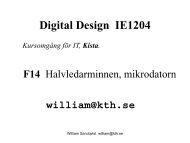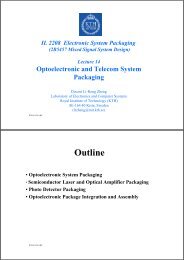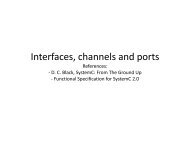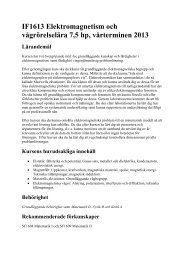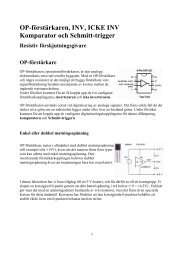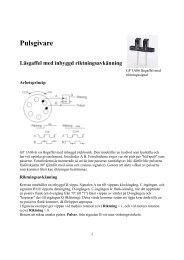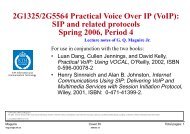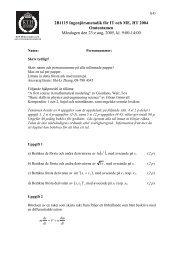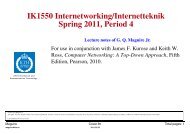An Overview of the PKCS Standards
An Overview of the PKCS Standards
An Overview of the PKCS Standards
Create successful ePaper yourself
Turn your PDF publications into a flip-book with our unique Google optimized e-Paper software.
Page 12<br />
ERROR! STYLE NOT DEFINED.<br />
4.7 <strong>PKCS</strong> #9: Selected Attribute Types<br />
<strong>PKCS</strong> #9 defines selected attribute types for use in <strong>PKCS</strong> #6 extended certificates, <strong>PKCS</strong><br />
#7 digitally signed messages, and <strong>PKCS</strong> #8 private-key information.<br />
4.8 <strong>PKCS</strong> #10: Certification Request Syntax Standard<br />
<strong>PKCS</strong> #10 describes a syntax for certification requests. A certification request consists <strong>of</strong><br />
a distinguished name, a public key, and optionally a set <strong>of</strong> attributes, collectively signed by<br />
<strong>the</strong> entity requesting certification. Certification requests are sent to a certification<br />
authority, who transforms <strong>the</strong> request to an X.509 public-key certificate, or a <strong>PKCS</strong> #6<br />
extended certificate. (In what form <strong>the</strong> certification authority returns <strong>the</strong> newly signed<br />
certificate is outside <strong>the</strong> scope <strong>of</strong> <strong>PKCS</strong> #10. A <strong>PKCS</strong> #7 message is one possibility.)<br />
The intention <strong>of</strong> including a set <strong>of</strong> attributes is tw<strong>of</strong>old: to provide o<strong>the</strong>r information about<br />
a given entity, such as <strong>the</strong> postal address to which <strong>the</strong> signed certificate should be returned<br />
if electronic mail is not available, or a "challenge password" by which <strong>the</strong> entity may later<br />
request certificate revocation; and to provide attributes for a <strong>PKCS</strong> #6 extended<br />
certificate. A non-exhaustive list <strong>of</strong> attributes is given in <strong>PKCS</strong> #9.<br />
Certification authorities may also require non-electronic forms <strong>of</strong> request and may return<br />
non-electronic replies. It is expected that descriptions <strong>of</strong> such forms, which are outside <strong>the</strong><br />
scope <strong>of</strong> <strong>PKCS</strong> #10, will be available from <strong>the</strong> certification authority.<br />
The preliminary intended application <strong>of</strong> <strong>PKCS</strong> #10 is to support <strong>PKCS</strong> #7 cryptographic<br />
messages, but is expected that o<strong>the</strong>r applications will be developed.<br />
5. Compatibility with o<strong>the</strong>r work<br />
This section describes <strong>the</strong> compatibility <strong>of</strong> <strong>the</strong> <strong>PKCS</strong> standards with o<strong>the</strong>r standards or<br />
agreements on public-key cryptography. For simplicity, we refer to <strong>the</strong> various works<br />
involving public-key cryptography as "standards," without regard to <strong>the</strong>ir formal approval<br />
by a standards-making body.<br />
Compatibility has many meanings. For instance, a standard A may be considered<br />
compatible with ano<strong>the</strong>r standard B if standard A provides algorithms that standard B can<br />
use. Or, standard A may generate data that standard B can process directly. We choose<br />
<strong>the</strong> definition that standard A is compatible with standard B if standard A provides<br />
something useful to standard B, where <strong>the</strong> usefulness may be contingent on a change in<br />
representation, and possibly on omission <strong>of</strong> information. Cryptographic operations are not<br />
allowed in <strong>the</strong> change <strong>of</strong> representation.<br />
We say standard A is "outbound" compatible with standard B if implementations <strong>of</strong><br />
standard A produce something useful to implementations <strong>of</strong> standard B, but not



